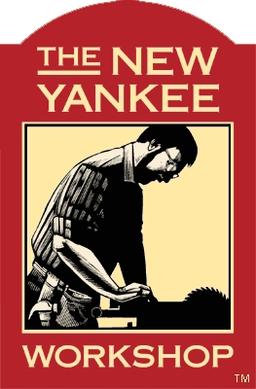Hey all, newb here. I’m building my first workshop in my basement with hand tools only (might add power tools later) and looking for some advice.
I’m still undecided on a sharpening setup, so wondering what other people like. How fussy are water stones, and how do you manage keeping them true? Do you have any cool tricks or things you want to show off?


So for a few years I thought sharpening classes at woodcraft. Had a lot of new woodworkers come through. Here’s my take:
Keep it simple at first. Get a coarse stone and a fine stone. Diamond plates are great for starting out. They are reasonably priced, stay flat, cut fast and give good tactile feedback. Practice with those until you get it right. Then make yourself a strop with a scrap of wood and some metal polishing compound. Practice with that until you get arm hair shaving results.
Once you’re getting consistently good results with that setup you can think about expanding your equipment line up.
Thanks, this is really helpful advice
Follow up question, what do you use for an abrasive fluid? I’m pretty new to sharpening and just bought diamond stones and lapping fluid, but the fluid is semi-expensive. I’ve seen about anything from just water, Windex, Krud Cleaner, and then all sorts of replies saying that each of those wreck the stone in some way. Is there a cheap alternative that you use, or should I just keep buying the lapping fluid?
I use water on my diamond plates, usually a weak solution of Simple Green. People swear by that for all sorts of things but I’m not entirely convinced it’s that much better than a little dish soap or just water.
I tried window cleaner per Paul Sellers but didn’t care for it. To be fair, he uses automotive window cleaner, which I didn’t have and wasn’t going to buy some to try it out, nor do I know if what he gets in the UK is the same as what we get in the US.
There will likely be rust on the plates, but know that is from the swarf, not the plate itself, which is a nickel alloy.
You can use a cheap rubber eraser to clean or one of those crepe sticks that are sold for cleaning sanding belts.
Diamond stones are pretty much fine with anything you want to use. In a pinch, use them dry but wipe off the metal dust frequently (dry rag). In the shop where I don’t have a sink I use a spray bottle of isopropyl alcohol (50% seems about right). In the kitchen I use soapy water. I’ve seen oil used but I’d rather not have the mess.
Diamond stones don’t absorb so any liquid that can be cleaned off and isn’t corrosive or otherwise dangerous will work.
For a real “first time” user the only suggestion I’d add to this A+ advice is to pick up a cheap set of chisels (&/or carving set). Cheap as in lowest price, quality isn’t really critical at this moment. (Harbor Freight, Amazon, etc). This way you can practice sharpening, grind a new base bevel angle, then try wet sanding on glass. You can explore processes & develop your own preferred methods all while having zero worries about messing up your expensive $ quality metal. This is prolly even more appropriate if your aspirations include carving & whittling blades because there are so many different types - unlike the general similarity found from one chisel to the next with only the blade width being different. TLDR: the advantage of having a sacrificial set of chisels/knives stems from being able to continually practice as often as desired & gaining muscle memory etc. thru repetition vs the inexperience resulting from infrequent opportunities coupled with the stress of not wanting to mess up new expensive metal.